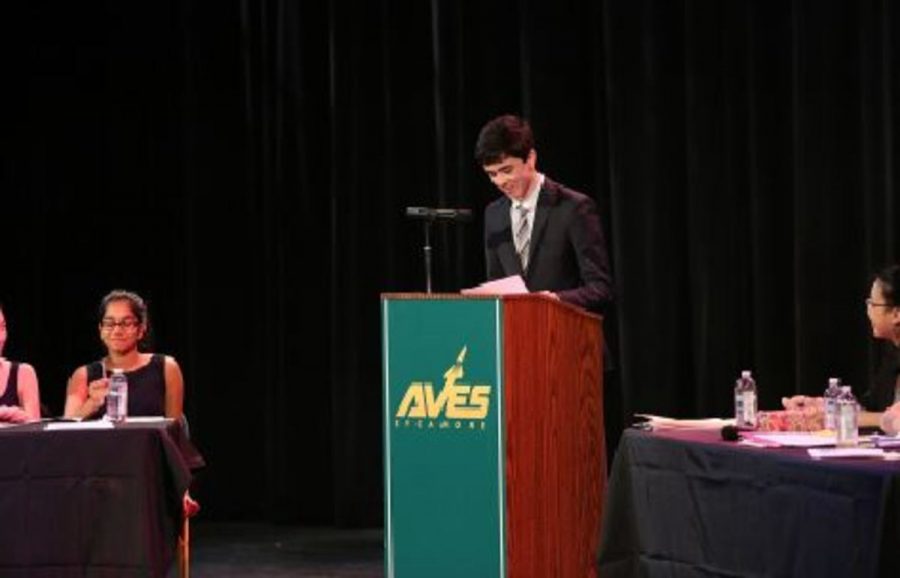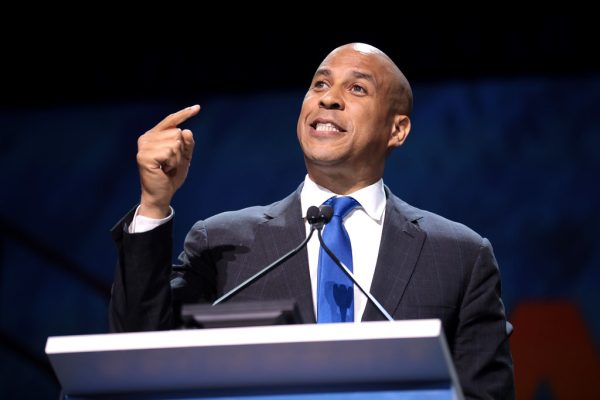Sophomores spring into debates
SPEAK UP. Junior Grant Brunner speaks at debate finals during last year’s competition. Although most teachers do not allow students to pick their own groups for debates, debates are truly a team effort. Group members must rely on one another to connect speeches and write the rebuttal.
The pressure is on for the 10th grade with the kick off of sophomore debates. This year’s topic is Resolved: Sycamore should not ban required homework in all courses. Debates began with students being broken up into groups of three or four within their English classes.
“[Debates] hit three things – speaking, research, and writing – all in one assignment that is actually really engaging rather than a typical research paper,” said Mrs. Melissa Sullivan, sophomore English teacher.
From that point, research and the writing of constructive speeches begins. The group is responsible for writing four constructive speeches: two negative and two affirmative. Groups will learn 24 hours before their debate whether they will be arguing the affirmative or negative.
Other aspects of debate include rebuttal and cross examination. Cross examination gives teams the opportunity to ask each other questions about their arguments or sources. Rebuttal involves taking into account what the other side said and finding ways to poke holes in their logic or argument in the form of a speech.
Once constructive speeches and cross examinations are completed, students have five minutes to converse with their group members about how they will respond in their rebuttal.
Following class debates, each class votes on who it deems their most valuable debaters; these students will go on to represent their class in the “All Star Debates.”
Some students have an appreciation for debates and what it aims to teach them.
“I think debates are a good experience because we can learn civil debate skills, and it’s good public speaking practice,” said Kiri Basher, 10.
Other students do no share the same enthusiasm for the long term project.
“I spent seven hours writing my speech about how we should not have homework. Ironic,” said Grace Mirande, 10.
Either way, debates are a defining aspect of sophomore year and an experience students will not soon forget.
Your donation will support the student journalists of Sycamore High School. Your contribution will allow us to purchase equipment and cover our annual website hosting costs.







